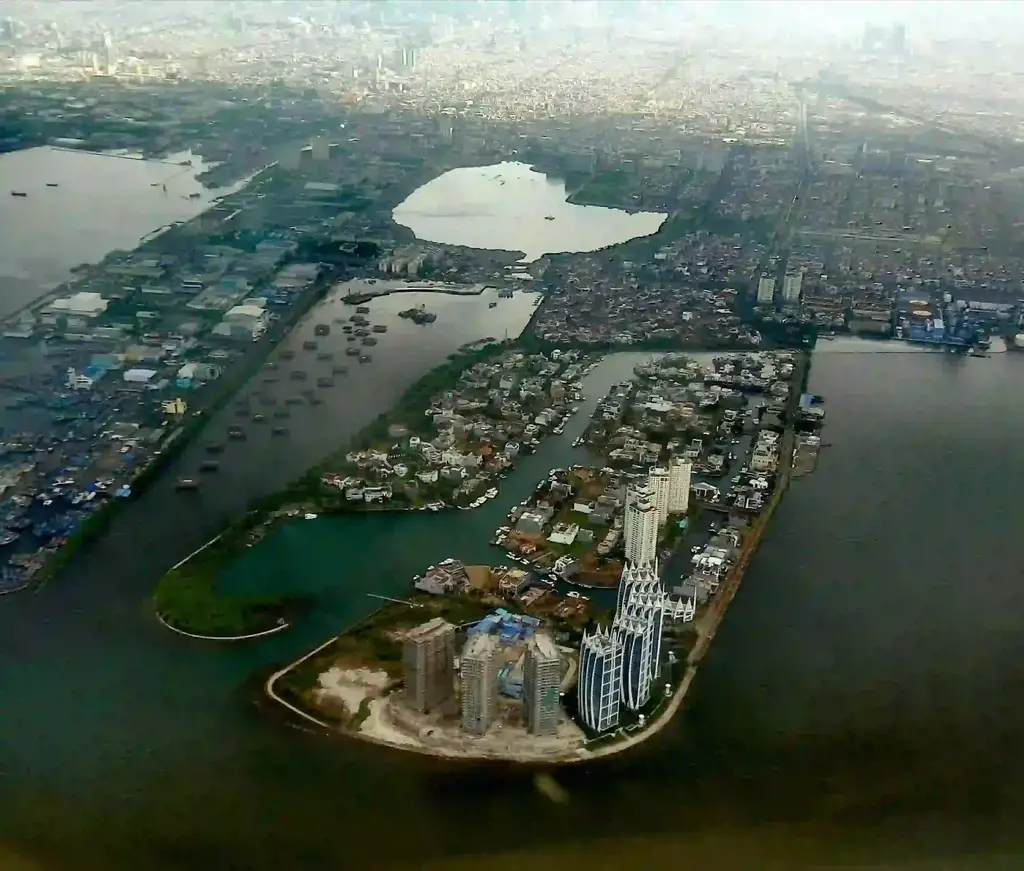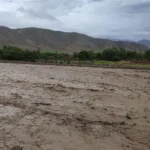Indonesia contemplates a $60 billion sea wall to counteract sinking and flooding in Jakarta, raising concerns over ecological and social impacts.

Indonesia is contemplating the construction of a massive sea wall along Java’s northern coast, aiming to combat land subsidence and rising sea levels, particularly in Jakarta.
The $60 billion project, facing criticism for potential ecological and social repercussions, seeks to counteract the sinking of Jakarta due to excessive groundwater extraction and urban development.
Airlangga Hartarto, the coordinating minister for the economy, emphasized the need for the sea wall to prevent land sinking and recurrent flooding.
The proposed project envisions a 120-km coastal and river dike by 2030, an adaptive sea wall to the west and east of Jakarta by 2040, and the completion of the sea wall with a reservoir by 2050. The Jakarta city administration aims to conclude the first phase of coastal embankment construction under the National Capital Integrated Coastal Development project by 2027, with 13 km of the planned 46 km already completed.
Airlangga highlighted the annual loss of 2.1 trillion rupiah ($135 million) in the region, which could escalate to 10 trillion rupiah ($642.7 million) per year in the next decade without intervention. Java, Indonesia’s most populous island, faces severe land subsidence issues in coastal areas, making them susceptible to tidal floods, saltwater intrusion, and water shortages.
The sea wall project also targets Jakarta’s water supply problems, relying on groundwater extraction. It incorporates a freshwater reservoir to store rainwater and river water, providing a sustainable water source for the city.
Defense Minister and presidential candidate Prabowo Subianto defended the substantial project cost, citing geological concerns on Java’s north coast and drawing parallels with the Netherlands’ experience. However, critics, including Elisa Sutanudjaja from the Rujak Center for Urban Studies, expressed concerns about the lack of focus on preventing groundwater extraction and questioned Prabowo’s involvement in the seminar.
The government, concurrently exploring the sea wall project, is also progressing with the ambitious plan to relocate the national capital from Jakarta to East Kalimantan on Borneo island.
President Joko “Jokowi” Widodo initiated the capital relocation plan in 2019 to address Jakarta’s chronic flooding and traffic problems, with construction underway for the new city, Nusantara.
Initially suggested in 2010, the sea wall idea faced opposition from environmental groups and local politicians who argued it would disrupt livelihoods and harm marine ecosystems.
A coalition of environmental and social groups, Maleh Dadi Segoro, contended that the sea wall project might exacerbate issues rather than solve them. They highlighted potential threats, including the narrowing and closure of fishing catch areas, jeopardizing the livelihoods of those reliant on the sea for sustenance and income.
Maleh Dadi Segoro emphasized the adverse impact on coastal habitats and biodiversity, crucial for providing ecological services and protection to both the population and the environment.
Critics, including Nirwono Joga, a city planning observer from Trisakti University, pinpointed uncontrolled groundwater extraction as a significant cause of land subsidence on the north coast.
Joga suggested exploring environmentally friendly alternatives such as coastal restoration and mangrove reforestation, acting as natural barriers against tidal floods, tsunamis, and drowning threats.
Joga stressed the importance of reviewing the sea wall construction in terms of funding and efficacy, saying that more sustainable and cost-effective solutions should be considered to address Jakarta’s complex challenges related to sinking land and coastal floods.







